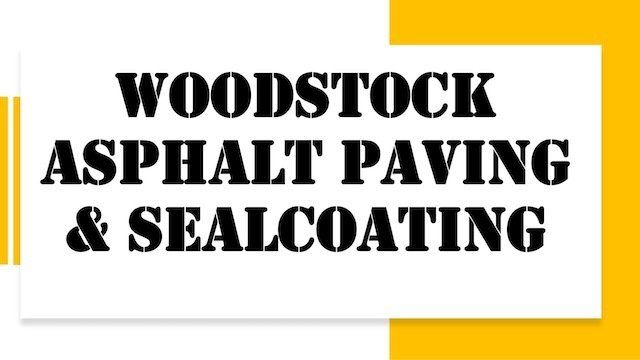Paved or Concrete Driveways? Find the Best Choice for Your Home
When deciding between a paved or concrete driveway, many homeowners find themselves at a crossroads. Both options have distinct advantages and potential drawbacks, making the decision far from straightforward. In this comprehensive guide, we'll explore the ins and outs of both surfaces, helping you make an informed choice that best suits your needs.
Why Your Driveway Choice Matters
Your driveway is more than just a place to park your car; it's an extension of your home. It can influence your property's curb appeal, functionality, and overall value. The right choice can provide durability for years, while the wrong one might lead to frequent repairs and maintenance.
Understanding Paved Driveways
Paved driveways typically refer to surfaces made from asphalt. They are popular due to their sleek appearance and affordability.
Benefits of Paved Driveways
Paved driveways offer several advantages. Firstly, they are generally less expensive to install compared to concrete. This makes them an attractive option for homeowners on a budget. Secondly, asphalt driveways are known for their smooth finish, providing a sleek, polished look that can enhance your home's curb appeal.
Durability and Maintenance of Paved Driveways
While asphalt is durable, it does require periodic maintenance. Sealing the surface every few years can extend its lifespan and protect it from cracks and potholes. Regular upkeep is essential to prevent water from seeping in and causing damage.
Environmental Impact of Paved Driveways
From an environmental perspective, asphalt is a petroleum product, which means it has a larger carbon footprint than some alternatives. However, advancements in recycling techniques have made it possible to reuse old asphalt, reducing its environmental impact.
Exploring Concrete Driveways
Concrete driveways are constructed using a mixture of cement, sand, and gravel. They are known for their longevity and can be customized with various finishes and colors.
Benefits of Concrete Driveways
Concrete driveways are celebrated for their durability. They can last up to 30 years or more with minimal maintenance. Additionally, concrete can be customized with different textures and colors, offering a range of aesthetic options to match your home's style.
Durability and Maintenance of Concrete Driveways
While concrete is generally low-maintenance, it is not entirely maintenance-free. Periodic sealing can help protect against stains and cracks. In colder climates, the freeze-thaw cycle can cause concrete to crack, but using a high-quality sealant can mitigate this issue.
Environmental Impact of Concrete Driveways
Concrete production involves significant energy consumption and CO2 emissions. However, concrete driveways can be made more environmentally friendly by using recycled materials and implementing sustainable practices.
Cost Comparison Between Paved and Concrete Driveways
One of the primary considerations for any home improvement project is cost. On average, asphalt driveways are cheaper to install than concrete. However, the initial savings might be offset by the higher maintenance costs associated with asphalt.
Initial Installation Costs
The cost of installation varies based on the driveway's size and location. Generally, asphalt costs between $2 to $4 per square foot, while concrete ranges from $4 to $6 per square foot.
Long-term Maintenance Costs
Over time, the maintenance costs of asphalt can add up. Regular sealing and occasional repairs are necessary to keep it in good condition. Concrete, on the other hand, requires less frequent maintenance, making it a potentially more cost-effective option in the long run.
Resale Value Considerations
When considering resale value, both options have their merits. A well-maintained driveway, whether asphalt or concrete, can enhance your property's appeal to potential buyers. However, concrete driveways tend to have a slight edge due to their longevity and customizable aesthetics.
Climate Considerations
Your local climate plays a significant role in determining the best driveway material for your home. Different materials respond differently to various weather conditions.
Hot Weather Climates
In hot climates, asphalt can become soft and sticky, potentially leading to deformation. Concrete, with its higher heat resistance, may be a better option in such areas.
Cold Weather Climates
In colder climates, freeze-thaw cycles can cause both asphalt and concrete to crack. However, asphalt driveways are generally more resilient to such conditions. Concrete driveways can be treated with sealants to reduce the risk of cracking.
Rainy and Humid Climates
For regions with high rainfall or humidity, drainage is a crucial consideration. Asphalt driveways can have issues with water pooling, leading to damage over time. Concrete driveways, with proper installation and sealing, can offer better drainage solutions.
Aesthetic Flexibility
The appearance of your driveway can significantly impact your home's overall look. Both asphalt and concrete offer various customization options.
Customizing Asphalt Driveways
While asphalt is typically black, it can be tinted with colored sealants to achieve different shades. Additionally, decorative borders and stamped patterns can be added to enhance its appearance.
Customizing Concrete Driveways
Concrete offers a broader range of customization options. It can be dyed in various colors, stamped with patterns, and finished with textures to mimic the look of stone or brick. These options allow for a high degree of personalization.
Matching Your Home's Style
When choosing between asphalt and concrete, consider how each material complements your home's architecture and landscaping. A sleek, black asphalt driveway might suit a modern home, while a textured, colored concrete driveway could enhance a traditional-style property.
Installation Process
Understanding the installation process can help you make an informed decision and prepare for the project.
Installing an Asphalt Driveway
The installation process for an asphalt driveway is relatively quick, typically taking 1-2 days. It involves preparing the base, laying the asphalt, and compacting it to create a smooth surface.
Installing a Concrete Driveway
Installing a concrete driveway takes longer, usually 3-5 days. The process includes preparing the site, setting forms, pouring the concrete, and allowing it to cure. The curing time is essential to ensure the driveway's strength and durability.
Choosing a Contractor
Selecting a reputable contractor is crucial for a successful installation. Look for contractors with experience in installing driveways and check their references and reviews. A skilled contractor can ensure proper installation, preventing future issues.
Sustainability and Eco-Friendly Options
For environmentally conscious homeowners, exploring sustainable options is essential.
Sustainable Asphalt Driveways
Recycled asphalt is an eco-friendly option that reduces the demand for new materials. Additionally, permeable asphalt allows water to pass through, reducing runoff and promoting groundwater recharge.
Sustainable Concrete Driveways
Using recycled materials in the concrete mix and opting for permeable concrete are ways to make your driveway more sustainable. These choices can help reduce the environmental impact of your project.
Green Certifications
Look for contractors and materials with green certifications, such as LEED (Leadership in Energy and Environmental Design). These certifications indicate that the materials and practices used meet high environmental standards.
Maintenance Tips for Longevity
Proper maintenance can significantly extend the lifespan of your driveway, regardless of the material.
Asphalt Driveway Maintenance
Regularly inspect your asphalt driveway for cracks and potholes. Seal the surface every few years to protect it from the elements. Promptly address any repairs to prevent further damage.
Concrete Driveway Maintenance
Keep your concrete driveway clean by regularly sweeping and washing it. Apply a high-quality sealant to protect against stains and cracks. Address any cracks promptly to prevent them from spreading.
Seasonal Care
Both asphalt and concrete driveways require seasonal care. In winter, use a plastic shovel to remove snow and avoid using harsh chemicals that can damage the surface. In summer, keep the surface clean and free from debris.
Safety Considerations
Safety should always be a priority when choosing and maintaining your driveway.
Slip-Resistance
Ensure that your driveway surface provides adequate traction to prevent slips and falls. Textured concrete and properly maintained asphalt can enhance slip-resistance.
Visibility and Lighting
Proper lighting around your driveway can improve visibility and safety, especially at night. Consider installing motion-sensor lights to illuminate the area when needed.
Addressing Hazards
Regularly inspect your driveway for hazards such as cracks, potholes, and debris. Promptly address any issues to maintain a safe environment for pedestrians and vehicles.
Conclusion
Choosing between a paved or concrete driveway involves considering various factors, including cost, durability, aesthetics, and environmental impact. Each option has its unique advantages and potential drawbacks, making it essential to weigh your priorities and preferences.
By understanding the benefits and challenges of each material, you can make an informed decision that enhances your home's curb appeal and functionality. Remember, a well-chosen driveway can add significant value to your property and provide years of reliable service.
Ready to take the next step? Explore our range of services and get expert advice on selecting the perfect driveway for your home. Contact us today to learn more!
Asphalt paving Atlanta, paving companies Atlanta, asphalt repair Atlanta, paving contractors Atlanta
We proudly serve the following cities: Acworth, Alpharetta, Atlanta, Austell, Brookhaven, Canton, Cartersville, Dallas, Decatur, Doraville, Douglasville, Duluth, Dunwoody, East Cobb, Hiram, Johns Creek, Kennesaw, Lilburn, Mableton, Marietta, Milton, Powder Springs, Roswell, Sandy Springs, Stone Mountain, Suwanee, Tucker, Villa Rica, and Woodstock Ga.
Woodstock Asphalt Paving & Sealcoating
Woodstock Ga 30188
404-724-8034
https://www.woodstockasphalt.com


